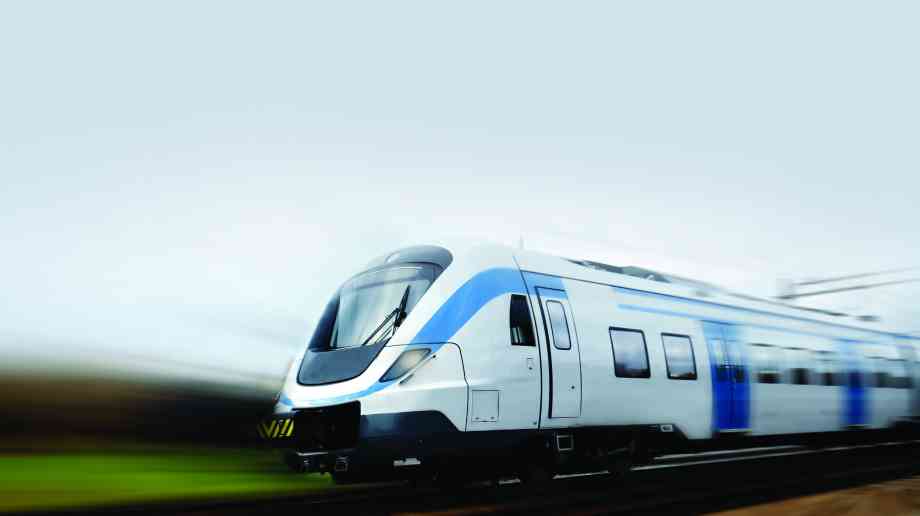Sue Robb of 4Children talks to Julie Laughton and Alison Britton from the Department for Education about the role of childminders in delivering the 30 hours free entitlement.
HS2 project managers ‘blindsided by contact with reality’

The Public Accounts Committee has warned that the High Speed 2 rail project has gone ‘badly off course’, with ministers unable to rule out further cost increases and delays.
The committee of MPs is demanding that the government provide regular, accurate and open updates on the problems the project is facing and progress on developing the appropriate skills and capabilities, saying that the last appearance before the committee of the Department for Transport Permanent Secretary and HS2 Ltd executives raised some serious concerns.
In March 2019, HS2 Ltd formally advised the Department for Transport that it would not be able to deliver Phase One of the programme on time or within the available funding. However, the Permanent Secretary did not make this clear when she appeared before the Public Accounts Committee in October 2018 and May 2019, even when asked specific questions about the programme’s delivery timeline and budget.
The Department’s emerging estimate in December 2019 gave a potential cost of between £65 billion and £88 billion: 17 per cent and 58 per cent respectively more than the available funding of £55.7 billion. The committee reports that these estimates were all given in 2015 prices, and so will also be revised to reflect inflation and changes in prices into the future. HS2 Ltd’s annual report and accounts for the year ending 31 March 2019 were also similarly found to have failed to give an accurate account of the programme’s problems.
In further damning criticism, the PAC said that it is not convinced that the Department for Transport and HS2 Ltd have the skills and capability they need, now or in the future. A lack of capability continues to be an issue: by its own recent assessment HS2 Ltd still has gaps in key areas such as risk management and assurance, project management and project control.
The PAC is not convinced that the Department for Transport is learning from problems across its major infrastructure projects to make sufficient and meaningful changes to its management of infrastructure programmes. In its recommendations to government, the committee is seeking new, formal assurances that DfT and HS2 Ltd have the capability to manage the programme and its supply chain, into construction and through to completion.
Meg Hillier, chair of the committee, said: “The committee is concerned about how open the Department and HS2 Ltd executives have been in their account of this project. It is massively over budget and delayed before work has even begun. There is no excuse for hiding the nature and extent of the problems the project was facing from Parliament and the taxpayer. The Department and HS2 appear to have been blindsided by contact with reality – when Phase One started moving through Parliament, the predicted costs of necessary commitments to the communities affected have exploded from £245 million to £1.2 billion.
“The government unfortunately has a wealth of mistakes on major transport infrastructure to learn from, but it does not give confidence that it is finally going to take those lessons when this is its approach. In the six-monthly reports the Department has now agreed to give us, we want to see an honest, open account, and evidence of learning from past mistakes being applied to bring this project under control, to deliver it within the timeline and budget that have been agreed in justifying the project.”
Company Focus
Brussel Lake Paragon is an esteemed software development company at the forefront of innovation, serving clients with distinction and dedication. With a rich history of excellence and a commitment to pushing boundaries, Brussel Lake Paragon has earned acclaim from esteemed entities such as the Mayor of London, solidifying its position as a leader in the industry.
Event Diary
UKREiiF has quickly become a must-attend in the industry calendar for Government departments and local authorities.
The multi-award-winning UK Construction Week (UKCW), is the UK’s biggest trade event for the built environment that connects the whole supply chain to be the catalyst for growth and positive change in the industry.
Supplier Profiles
Geo Energy
At GeoEnergy Design, we're on a mission to disrupt the traditional way heating and cooling ha
In the heart of our community, Waste Management stands as a testament to sustainable environmenta
Latest Features
Professor Harith Alani, director of the Knowledge Management Institute at the Open University explains how AI can be used for good and bad.
Alex Lawrence, head of health & social care, techUK sets out techUK’s Five Point Plan for CareTech.
















